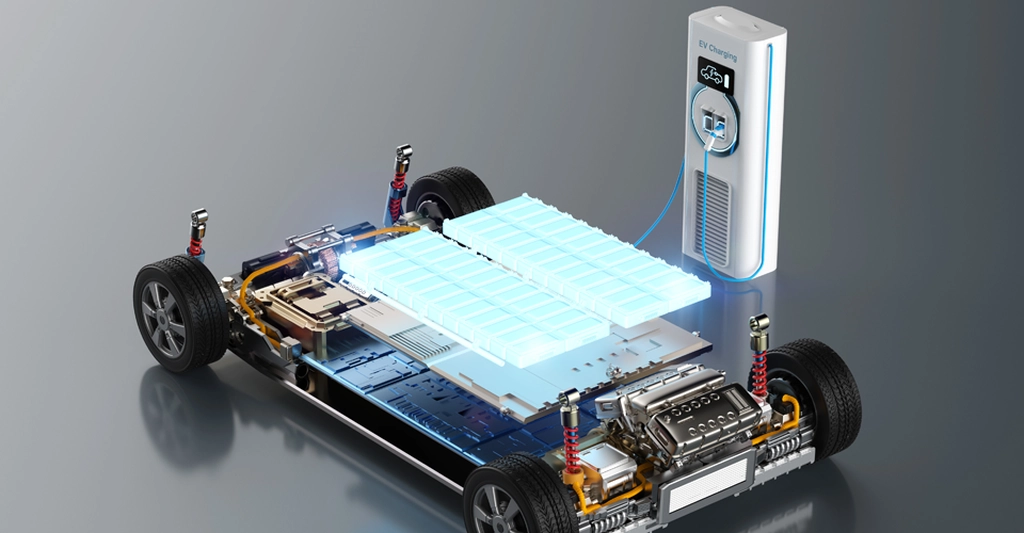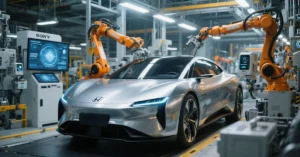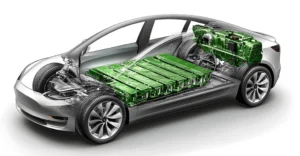Electric vehicles are evolving faster than ever and now; China’s tech powerhouse Xiaomi is diving deep into the future of EV energy storage. Known for everything from smartphones and laptops to smart home gear and even electric sedans, Xiaomi has just taken a bold leap into the solid-state battery race and the implications could be massive.
What’s the Big Deal with Solid-State Batteries?
In short, solid-state batteries are seen as the holy grail of electric mobility. Unlike traditional lithium-ion batteries that use a liquid electrolyte to move energy between the electrodes, solid-state batteries rely on a solid material. That difference has big benefits:
- Higher energy density (more range per charge)
- Faster charging speeds
- Improved safety (no flammable liquid)
- Longer lifespan
It’s no wonder automakers like Toyota, BMW, and Mercedes-Benz are all scrambling to perfect this next-generation battery tech. Now, Xiaomi has entered the race and it might be on track to pull ahead.
Xiaomi’s Patent: A Potential Game-Changer
Xiaomi has filed a new patent for a multi-layered electrode design in a solid-state battery. That’s a fancy way of saying they’ve found a new method for building a battery that can move energy more efficiently. The layered electrode structure built around a central current collector allows ions to travel shorter distances during charging and discharging, which can drastically improve performance.
The result? A solid-state battery capable of delivering over 1,200 kilometres of range on China’s Light Duty Test Cycle (CLTC). Even adjusting for more conservative global testing standards, this could translate to around 800 kilometres per charge comparable to or better than many current premium EVs on the road.
Fast Charging Like Never Before
One of Xiaomi’s most bold claims is its battery’s ability to add 800 kilometres of range in just 10 minutes of charging. While this is still theoretical, if proven, it could eliminate one of the most significant pain points of EV ownership charging time.
Why Xiaomi’s Approach Is Different
What sets Xiaomi apart isn’t just the performance it’s the practicality.
Many solid-state battery prototypes require entirely new manufacturing processes. But Xiaomi claims its new battery tech can be produced using existing lithium-ion battery lines. This could dramatically lower the barrier to mass production, speeding up commercialization and cutting costs.
The new solid-state battery also integrates well with Xiaomi’s cell-to-body (CTB) vehicle design, improving space efficiency and weight distribution. According to internal reports, the battery has a volume efficiency of nearly 78% and a low profile of just 120 mm, allowing for sleeker and more spacious EV designs.
How Does It Compare to Current Xiaomi EVs?
Xiaomi’s current SU7 EVs use lithium-iron phosphate (LFP) batteries supplied by BYD and CATL, offering ranges of 700 to 830 kilometres under CLTC standards. These are already strong figures, especially for their price point, but the solid-state batteries would push those numbers even higher while improving thermal stability and safety.
As competition in China’s EV market heats up, automakers are in a race not just for customers but for technical superiority. Xiaomi’s pivot into solid-state batteries signals its intention to become more than just a new player. It wants to lead.
Challenges Ahead: Scaling the Dream
While the potential is exciting, solid-state batteries still face major hurdles:
- Low ionic conductivity in many materials
- Manufacturing complexity
- Dendrite formation, which can cause internal short circuits
- High material costs, especially for rare metals like lithium and cobalt
Xiaomi claims its solution addresses many of these issues by optimizing the electrode design for faster ion movement and compatibility with current production lines. But it’s important to note: most automakers agree that commercial-scale solid-state EVs won’t arrive until at least 2028–2030.
Industry Context: The Global Solid-State Race
Xiaomi joins a growing list of automakers and suppliers making real strides in solid-state development:
- Toyota is road-testing solid-state batteries in prototype vehicles.
- BMW plans to offer limited-production models with solid-state packs by 2027.
- CATL and SAIC are targeting small-scale production around the same time.
Beyond cars, these batteries have the potential to power everything from drones and smartphones to grid-scale storage systems redefining how we store and distribute energy on a global scale.
Final Thoughts: Is This the Future?
While still early in the game, Xiaomi’s battery patent signals a significant step toward the next chapter of EV innovation. If their claims hold true and if the battery can be produced affordably it could help accelerate the global transition to electric mobility.
For EV buyers, it means a future of faster charging, longer ranges, safer vehicles, and better everyday usability.
Want to Be Part of the EV Revolution?
Whether you’re driving a current-generation EV or planning to upgrade soon, keeping your vehicle in peak condition is essential to maximizing range and battery life. MotorHub connects EV owners to expert service centres for diagnostics, battery health checks, and long-term maintenance solutions tailored to your needs.
In the UAE’s hot and dry climate, battery care becomes even more critical. MotorHub UAE helps you find reliable EV maintenance workshops experienced in managing heat-sensitive components and long-range electric vehicles. Book your EV check-up or battery service today at MotorHub.



